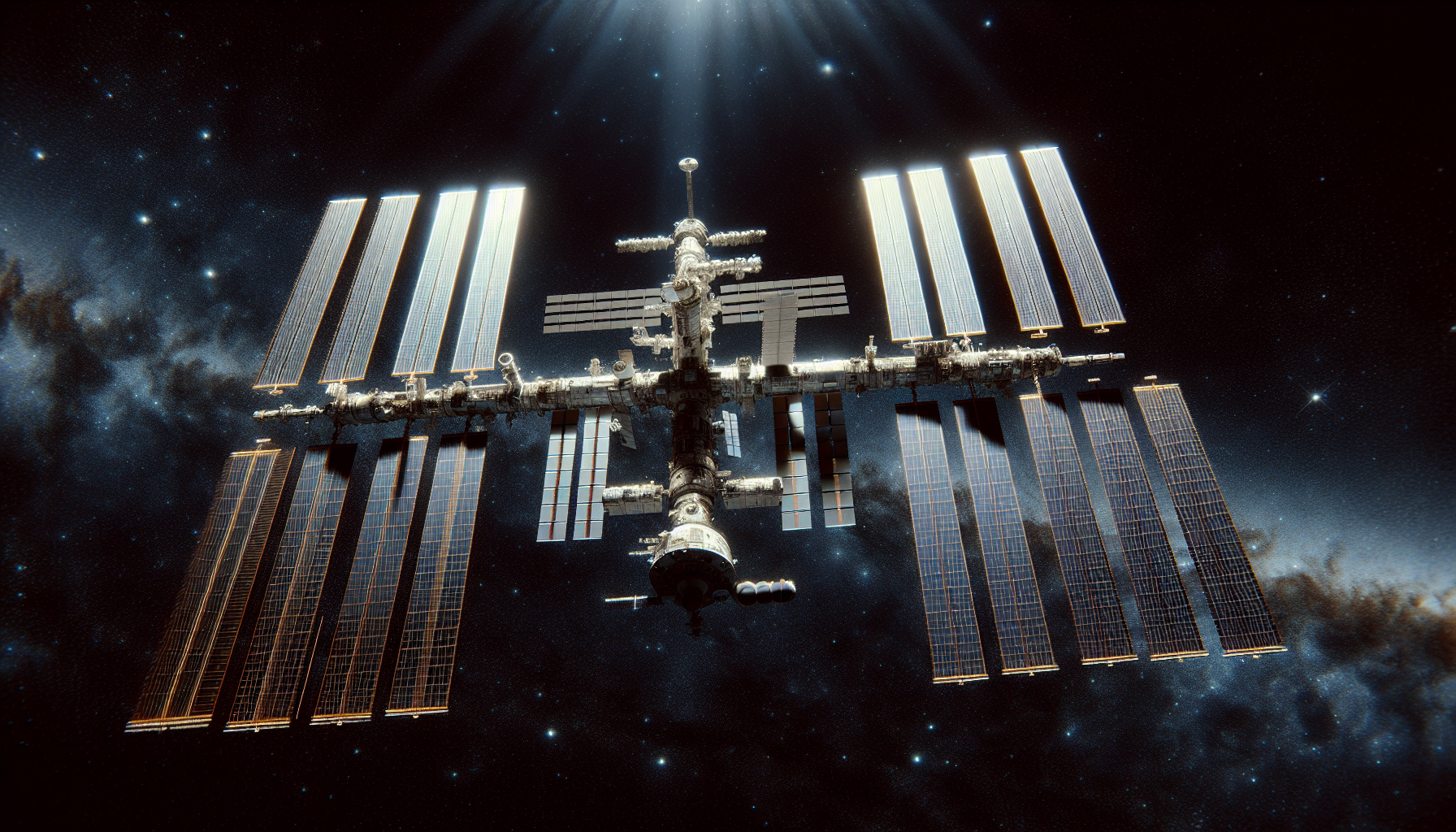Quick Read
- A new coolant leak has been discovered on Russia’s Nauka module aboard the International Space Station.
- The incident represents the third instance of Russian hardware experiencing a leak within a year.
- The activities on the ISS and the safety of the crew continue to be unaffected.
- Current inquiries into possible production defects or external influences.
New Coolant Leak Found on ISS’ Nauka Module

On October 9, 2023, Russia’s Nauka module experienced a coolant leak, contributing to a series of hardware problems on the International Space Station (ISS). NASA’s flight controllers detected the incident when they observed flakes emanating from one of the radiators on the multipurpose laboratory module.
Incident Details
At approximately 1:00 p.m. ET, NASA’s mission control detected a coolant leak originating from Nauka’s backup radiator, which is externally mounted. Visual inspection via exterior ISS cameras confirmed the presence of flakes from the radiator. The onboard crew corroborated the sighting and took safety measures by closing shutters on the windows of the U.S. segment to avoid contamination.
Earlier Incidents of Coolant Leaks Related to Russian Equipment
This is the third time within a year that Russian equipment has experienced a coolant leak. In December 2022, a Soyuz spacecraft docked at the ISS had a coolant leak, which impacted NASA astronaut Frank Rubio and Roscosmos cosmonauts Sergey Prokopyev and Dmitri Petelin. Another leak happened in February 2023 involving the Russian Progress 82 cargo spacecraft.
Possible Causes Being Examined
At first, Russia blamed a micrometeorite strike for the initial leak. However, repeated incidents have led to suspicions of potential manufacturing flaws in the Russian equipment. Investigations are currently underway to identify the underlying cause of these leaks.
Effects on ISS Activities and Crew Security
Despite these events, NASA confirms that the ISS crew is secure and that the leaks have not affected ISS activities. The main radiator on Nauka is still working as expected, maintaining the module’s functionality.
Conclusion
The recent coolant leak in the Nauka module underscores the persistent challenges associated with Russian hardware aboard the ISS. As investigations proceed, NASA and Roscosmos are prioritizing crew safety and striving to maintain uninterrupted station operations.
Summary
The International Space Station (ISS) experienced another coolant leak in the Russian Nauka module, making it the third incident of this kind involving Russian equipment in the past year. Although the main radiator continues to operate and the crew is safe, ongoing investigations aim to determine whether these leaks are due to manufacturing defects or external causes such as micrometeorite impacts.
What led to the recent coolant leak on the Nauka module?
A: The precise cause is currently under examination, but it pertains to the backup radiator of Nauka leaking coolant. Earlier incidents were blamed on micrometeorite impacts or possible manufacturing flaws.
Q: What impact does this incident have on ISS activities?
A: NASA guarantees that ISS operations and crew safety remain unaffected, as the primary radiator of Nauka is still operating as usual.
Q: Have similar incidents occurred previously?
A: Indeed, there have been two additional coolant leaks involving Russian equipment over the last year: one occurred with a Soyuz spacecraft in December 2022, and the other involved the Progress 82 freighter in February 2023.
Q: What steps are being implemented to avoid contamination?
A: As a precautionary measure against contamination from coolant flakes, the crew has closed the shutters on the windows in the U.S. segment.
Q: Is the crew of the ISS in any jeopardy?
A: NASA has confirmed that the crew is safe and not in any danger as a result of this incident.
Q: Are there any plans for permanent solutions under consideration?
A: Current investigations are focused on pinpointing the underlying causes of these leaks, potentially paving the way for lasting solutions to prevent future occurrences.
For additional updates and news about spaceflight, follow us on X (previously known as Twitter) and save Gigabeat’s Spaceflight page to your bookmarks.
